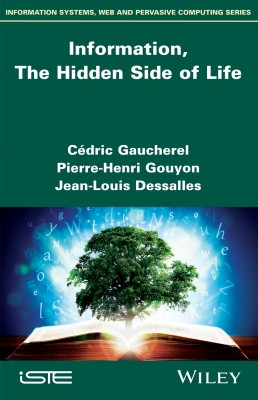
This book explores the unity of life. It proposes that the concept of information is the inner essence of what we today call life.
The importance of information for our species is obvious. Human beings are highly dependent on information, constantly exchanging with conspecifics. In a less apparent way, we are the product of genetic and epigenetic information which determines our development in a given environment from a fertilized egg to the adult stage. Even less apparent is that information plays a determining role in ecosystems. This observation may include the prebiotic systems in which life emerged.
Our claim is that Nature processes information continuously. This means that even beyond living entities, we can see messages and decoding procedures. Nature can be said to send messages to its own future and then to decode them. Nature “talks” to itself! The systematic organization of messages suggests that, in some respects, we should even speak of the “languages” of Nature.
1. Human and Animal Communication.
2. Genetic Information.
3. Ecosystem and Information.
4. Can We Define Information?
5. Evolution of Information.
Cédric Gaucherel is a researcher at INRA and holds a PhD in Astrophysics and an HdR in Theoretical Ecology. Among various environmental subjects, he studies ecosystem functioning with cutting-edge concepts and mathematical models.
Pierre-Henri Gouyon is a Professor at the Muséum National d’Histoire Naturelle, AgroParisTech, Sciences Po and the Ecole Normale Supérieure in France. He is a researcher studying evolution and its mechanisms at all scales, from genes to ecosystems.
Jean-Louis Dessalles is a Professor at Télécom ParisTech, France, and is involved in the quest for fundamental principles underlying the language faculty and its biological origins. He also uses mathematical modeling to test the hypothesis of the political origins of human language.